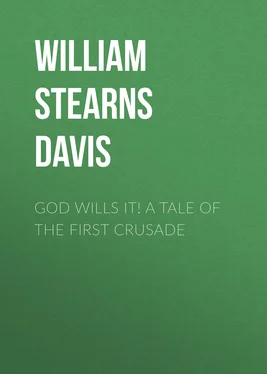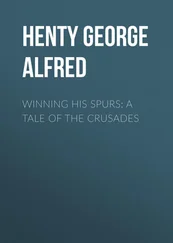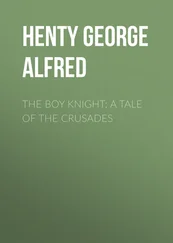William Stearns Davis - God Wills It! A Tale of the First Crusade
Здесь есть возможность читать онлайн «William Stearns Davis - God Wills It! A Tale of the First Crusade» — ознакомительный отрывок электронной книги совершенно бесплатно, а после прочтения отрывка купить полную версию. В некоторых случаях можно слушать аудио, скачать через торрент в формате fb2 и присутствует краткое содержание. Жанр: foreign_prose, foreign_antique, на английском языке. Описание произведения, (предисловие) а так же отзывы посетителей доступны на портале библиотеки ЛибКат.
- Название:God Wills It! A Tale of the First Crusade
- Автор:
- Жанр:
- Год:неизвестен
- ISBN:нет данных
- Рейтинг книги:4 / 5. Голосов: 1
-
Избранное:Добавить в избранное
- Отзывы:
-
Ваша оценка:
- 80
- 1
- 2
- 3
- 4
- 5
God Wills It! A Tale of the First Crusade: краткое содержание, описание и аннотация
Предлагаем к чтению аннотацию, описание, краткое содержание или предисловие (зависит от того, что написал сам автор книги «God Wills It! A Tale of the First Crusade»). Если вы не нашли необходимую информацию о книге — напишите в комментариях, мы постараемся отыскать её.
God Wills It! A Tale of the First Crusade — читать онлайн ознакомительный отрывок
Ниже представлен текст книги, разбитый по страницам. Система сохранения места последней прочитанной страницы, позволяет с удобством читать онлайн бесплатно книгу «God Wills It! A Tale of the First Crusade», без необходимости каждый раз заново искать на чём Вы остановились. Поставьте закладку, и сможете в любой момент перейти на страницу, на которой закончили чтение.
Интервал:
Закладка:
How long the mounted two could have beat back the unmounted twenty only the wise saints know; for just as Richard's hauberk had turned the third javelin, and his eyes danced with stars when his helmet dinted, a new cry rang from behind.
"Forward, brothers! Slay! death!" And a bolt from Herbert's crossbow crashed through a pirate's target,—herald of the advent of the man-at-arms and fifteen riders more; at sight whereof the pirates—guessing at last that it was all over with their comrades who had gone inland—fled like partridges through the grove, over the white sands; and before Herbert could rein in his steaming beast, they heard the blocks creaking, as feverish hands made sail and warped the ship to sea. Not all thus to escape; for the Normans nipped several, whom they tugged away, strapped to the saddle-bows, after having searched them for jewels down to their shoes.
Richard looked about him. The lady, agile as a fée , had alighted, and was standing, clinging with both hands to an orange tree, panting for breath,—as did all. The Spaniard had dismounted also, and stood leaning against the saddle.
While waiting breath for speech, Longsword surveyed the rescued, finding in both need of more than one glance. The costume of the Moor had been sadly dealt with, but his silken vest and the shawl at his girdle were of the finest silk, and set off a most shapely frame. He was tall, wiry, supple as a blooded charger; and no dress would have concealed a face so intelligent, ingenuous, winsome, that, as Richard looked thereon, he had but a single thought,—"I would know more of this man." The countenance was a fine oval, the forehead not high but prominent; the eye, brilliant, deep, and dark; the small mouth, shaded by a black curly beard; the skin not swarthy, yet tinged with pale brown, a gentle bronzing of the sun-loved vegas. But these are parts only, and the whole—how much fairer was it than any part! For the face thrilled with eager, active intelligence, and the eyes seemed but open windows to a soul,—a soul perchance to admire, to reverence, to love. And as Richard beheld him, he felt a magic current of fellow-feeling drawing him to the Spaniard, ere they had spoken ten syllables.
Yet not all the Norman's gaze was for the Moslem—far from it. The lady no longer wore her yellow veil: the red ribbons were in tatters round her throat; her blue mantle had many a rent; but of these, who would think? She stood with her brown hair all dishevelled to the winds, and underneath the flying tresses one could see those bright eyes—dark, bright, and very merry; a high, white forehead, small red lips, and features that seemed smoothed and rounded like some marble image of the old pagans, which Sebastian had called "a snare of Satan." But this was no snare; for these cheeks were moulded with a soft texture and bloom like a pale rose; not quite fair, like Norman maidens, but just tinted enough to show the breath of the sun. All this Richard saw, and was not awestruck nor abashed, as in the presence of many handsome dames; but simply delighted, and, as chance would have it, the lady herself broke silence.
"By St. Theodore, Sir Frank," quoth she, holding out both hands to Richard, "will you say again to my face that you can do nothing brave?" And here she laughed so merrily, that the Norman was laughing too when he replied, having taken the hands:—
"Ah! dear lady, it is the white falcon you should thank, if any praise be due."
"And no praise for the falcon's trainer?" quoth she, still laughing; then with a sudden turn, while the tears almost stood in her eyes, " Eu! Brave, noble sir, what may I do to repay! Kneel, fall at your feet, kiss them?"—and half she made to do so, but Richard shrank back, as if horrified.
"St. Michael forbid!" cried he; "rather this, let me kneel and kiss your hand, blessing Our Lady she has suffered me to save you!"
"But the peril was very great!" protested the lady, while Richard did as he wished, and kissed a hand very small and white.
"But the joy of peril is greater in such a cause!" he flashed back, rising. There was a shadow flitting across that bright face.
"My father?" the question came slowly. "He is—safe?"
"I saw him released; have no fear. I swore to him I would save you." And the flush of pleasure was Richard's tenfold payment.
"Let us go to him," said the Norman, as he bade one of the men-at-arms arrange a pillion and ride back with the Greek toward the scene of the first battle.
"Ah! may all the dear saints bless you and your good men—I would give my life for my father!" said she.
So while the lady rode ahead, Richard galloped stirrup to stirrup with the Spaniard. He had needed no words to tell him that the Moslem was a notable cavalier, and the Spaniard had dispelled all doubts by a frank declaration of his name and position.
"Know, O Frank, that you have this day won the eternal gratitude of Musa, son of Abdallah, the late Vizier of Al'mu'tamed, King of Cordova, though I am better known as 'the Sword of Granada,' for in that city have I spent much of my life."
And the Christian bowed his casqued head in humblest reverence, asking:—
"Then truly have I saved that famous knight, who, they say, held the lists at Toledo, during the truce, against the Cid Campeador and all his cavaliers?"
"I had that fortune," said the Spaniard, smiling, and returning the bow; "but," and he spoke lightly, "I would not have you, Sir Frank, regard me in an awesome fashion; for, believe me, after striking the blows I saw you give to-day, you may, I think, break lances with the best, and owe deference to none."
"Ah, my lord," cried Richard, "it has been a great privilege for a simple 'bachelor' like myself to be of service to so great a warrior."
The Moslem laughed, and made reply: "No, I will not be 'lorded' by you. I think I know an equal and a friend when I set eyes on him. To you my name is Musa; and yours—?"
"Richard Longsword," was the answer.
"Then, O Richard, we know one another and are brothers."
Then and there, while the horses were at a merry pace, the two young men leaned over their saddles and caught one another's hands. And at that moment was stricken a friendship that was destined to bind with hooks of steel through more than one fateful year. As if to cement the tie, Longsword passed the flask at his belt to the Spaniard.
"Drink, friend, for you have seen enough this day to chill your veins, even if your prophet forbids wine."
"I am but a lax Moslem," replied Musa, with another of his soft smiles. And taking the flask, he clapped it to his lips. "'Wine of Paradise'!" cried he, when he took it away. "Ah, an hour since I expected that I would be soon drinking from the cups of the houris in the real Paradise, or more likely"—with a sly wag of the head—"scorching in no gentle fire!"
"Then the raiders sought your life, not your ransom?" asked the Norman.
"Assuredly; do not think I have lain so hidden here at Cefalu because, like a dervish or one of your monks, I enjoy solitude. I fled Spain because my blood is too princely to make my presence safe to Yusuf, the Almoravide, who has come from Africa to save us Spanish Moslems from conquest by the Christians, and who has conquered us himself. When Granada fell and its treasures were scattered as booty to his rude Berber officers, and when Seville and all Andalusia were in his hands, imprudently I spoke of the days of our great Kalifs. The words were remembered by enemies and duly reported. Presently I heard that Yusuf suspected me of leading a revolt in Cordova against his rule, and that he keenly desired my head. I will not tell how I escaped to my Cid Campeador at Valencia, and thence to King Alfonso of Castile. But the Almoravide's arms are long. Nowhere in Spain would I be safe. So I came to Sicily, where I have relatives, hoping by lying close to elude his agents; but in vain, as has just been proved!"
Читать дальшеИнтервал:
Закладка:
Похожие книги на «God Wills It! A Tale of the First Crusade»
Представляем Вашему вниманию похожие книги на «God Wills It! A Tale of the First Crusade» списком для выбора. Мы отобрали схожую по названию и смыслу литературу в надежде предоставить читателям больше вариантов отыскать новые, интересные, ещё непрочитанные произведения.
Обсуждение, отзывы о книге «God Wills It! A Tale of the First Crusade» и просто собственные мнения читателей. Оставьте ваши комментарии, напишите, что Вы думаете о произведении, его смысле или главных героях. Укажите что конкретно понравилось, а что нет, и почему Вы так считаете.












